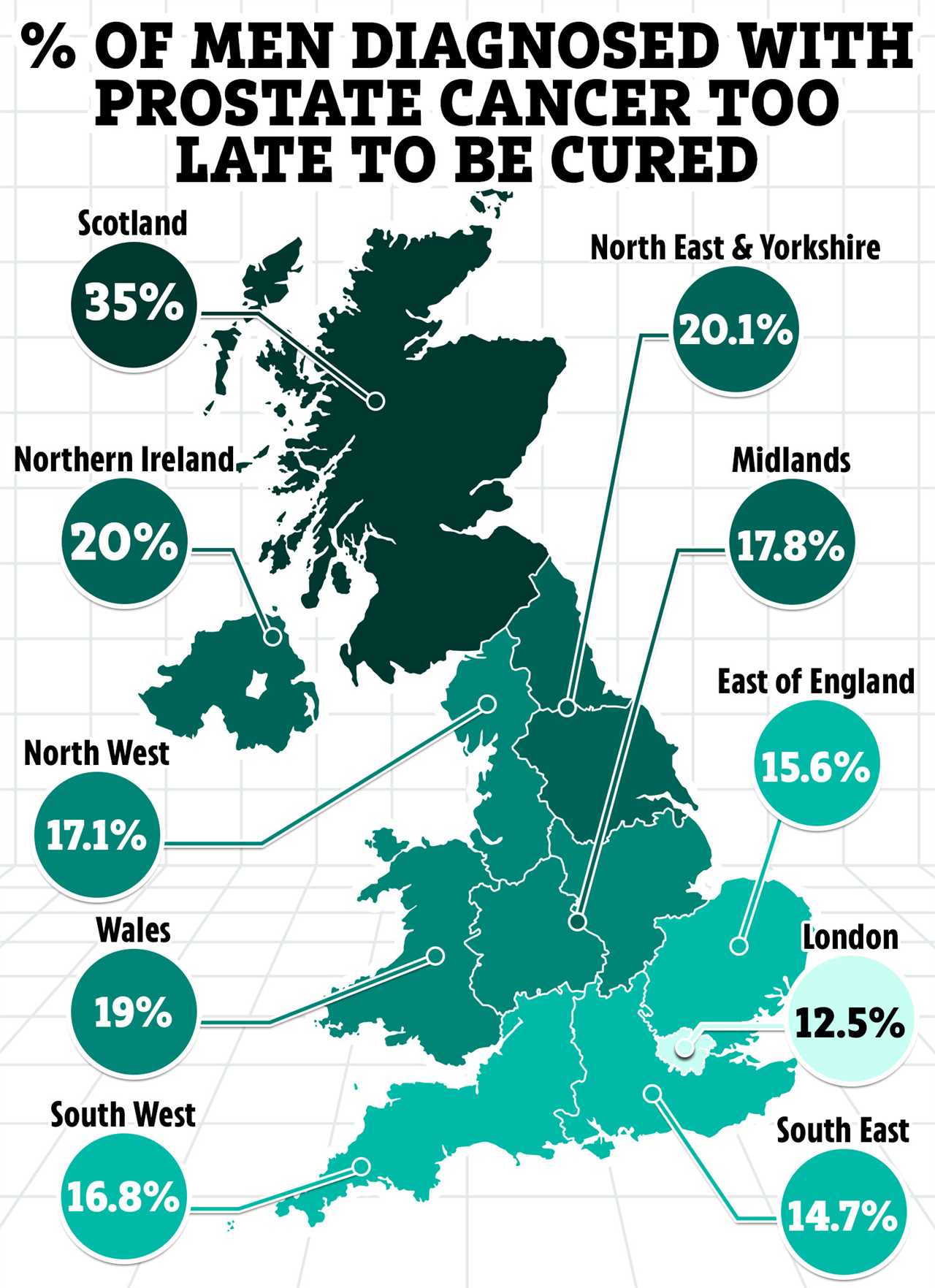PROSTATE cancer patients across the UK are facing a “postcode lottery” of care, a charity has warned.
It’s the most common cancer amongst men in the UK with over 40,000 new cases diagnosed each year.

This map reveals the percentage of men in your area diagnosed with a common cancer too late
Prostate cancer is very treatable if caught early.
But Prostate Cancer UK said the number of men diagnosed with the disease when it is too advanced to treat varies significantly depending on where patients live.
In Scotland, more than a third (35 per cent) of men are only diagnosed when the disease is classed as stage 4 – which means the cancer has spread to another part of the body and is also known as metastatic cancer.
This is compared to just 12.5 per cent of men in London.
When a cancer becomes metastatic it can rarely be cured.
The data suggests men from deprived areas are at higher risk of being diagnosed at a later stage of the disease, the charity added.
While the figures are largely taken from information gathered before the pandemic, the charity suggested that outcomes for men are not likely to have improved during the period when the health services across England, Northern Ireland, Wales and Scotland have been under significant pressure.
The cancer charity used various data sets to find out the proportion of patients diagnosed with metastatic prostate cancer.
Laura Kerby, the chief executive of Prostate Cancer UK, said: “This postcode lottery for cancer diagnosis simply isn’t fair, and the picture in Scotland is particularly shocking.
“Every man should get an equal chance of a cure, which is only possible if his cancer is caught early.
“Unfortunately, early prostate cancer usually doesn’t have any symptoms, which is why men need to be aware of their risk and should take our online risk checker to find out more.
“If you’re at higher risk – which includes all men over 50 – you’re entitled to a free PSA blood test from your GP.
“Because of their higher risk, we strongly recommend that black men and men with a family history of prostate cancer should speak to their GP from the age of 45.”
Laura raised concerns about fewer men being diagnosed since the arrival of Covid, saying there was “a long way to go to fully reverse the impact of the pandemic”.
How is prostate cancer treated?
Assuming prostate cancer is caught in its early stages, treatment is not normally immediately necessary.
In these cases, doctors have a policy of “watchful waiting”.
Treatment includes surgically removing the prostate, radiotherapy, and hormone therapy.
One man was cured after being given testosterone in an experimental trial designed to shock tumours to death.
Nearly all prostate cancer treatments come with the unwanted side effects of erectile dysfunction and urinary incontinence, which is why many men choose to delay treatment.
The only exception is non-surgical laser treatment, which doesn’t cause impotence – but is still in its trial stages.
If the cancer has already spread, it cannot be treated, and medical help is focused on prolonging life and relieving symptoms.






